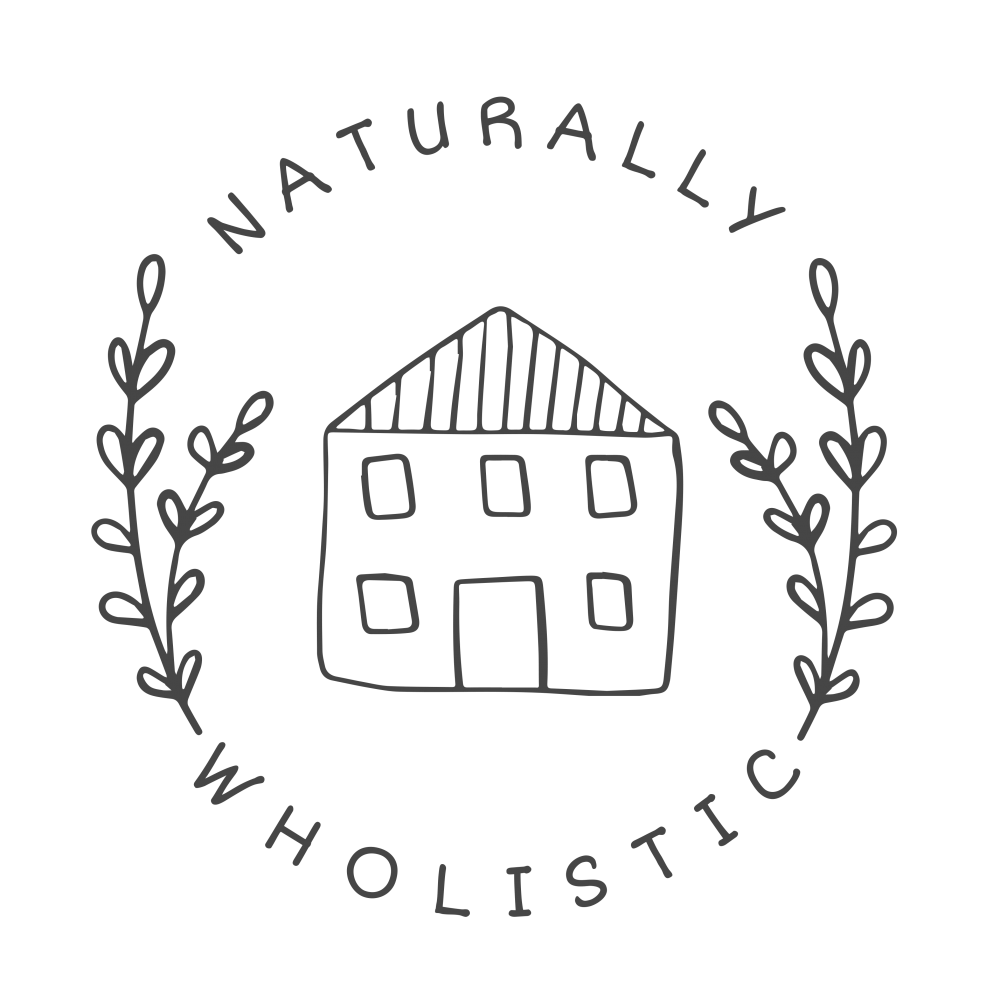.jpg) Have you ever grown garlic? After harvesting my first planting last summer (planted fall 2022), I was so pleased with the success that I put another batch in the ground this past October (2023) and tripled the amount! I ordered a large sampler of different types of organic bulbs from Mountain Valley Garlic, so I can’t wait to see what happens at harvest time this summer! Because garlic is planted in the fall about a month before the first frost, it overwinters and requires very little maintenance. What a dream herb to cultivate! I will admit I had basically no idea what I was doing the first time around, but fortunately my garden took care of it for me. When I planted, I did add some compost to the holes but that’s just about all I did to help the bulbs grow. I am continually amazed at how God designed creation to grow food for us – it’s truly amazing and simply never gets old! I even missed cutting the scapes at the right time and I think I harvested the bulbs a little too late in July, but I had quite a bounty so I couldn’t have messed them up that bad!
Have you ever grown garlic? After harvesting my first planting last summer (planted fall 2022), I was so pleased with the success that I put another batch in the ground this past October (2023) and tripled the amount! I ordered a large sampler of different types of organic bulbs from Mountain Valley Garlic, so I can’t wait to see what happens at harvest time this summer! Because garlic is planted in the fall about a month before the first frost, it overwinters and requires very little maintenance. What a dream herb to cultivate! I will admit I had basically no idea what I was doing the first time around, but fortunately my garden took care of it for me. When I planted, I did add some compost to the holes but that’s just about all I did to help the bulbs grow. I am continually amazed at how God designed creation to grow food for us – it’s truly amazing and simply never gets old! I even missed cutting the scapes at the right time and I think I harvested the bulbs a little too late in July, but I had quite a bounty so I couldn’t have messed them up that bad!
.jpg) Garlic is a powerful super food!
Garlic is a powerful super food!
If you have a garden, I seriously encourage you to consider adding garlic! It is so much more flavorful than store-bought that I actually use less garlic when I’m cooking with my home grown bulbs. Plus you know what’s in your soil and can be assured that it’s not being sprayed with toxic pesticides or herbicides. It’s also beneficial to have a fresh supply because garlic is such a powerhouse of health! It’s a culinary herb my family uses regularly and plentifully. Phyllis A. Balch (2010) writes, “Garlic is one of the most valuable foods on the planet. It has been used since biblical times and is mentioned in the literature of the ancient Hebrews, Greeks, Babylonians, Romans, and Egyptians” (p. 200).
- Garlic (Allium sativa) is rich in antioxidants, making it a potent botanical to fight free radicals and oxidative stress (Groves, 2016). It is also an anti-inflammatory and a good source of vitamins and minerals, like Vitamin C, B6, manganese, selenium, and fiber.
- It helps strengthen the heart over time by modestly lowering cholesterol and triglycerides, thinning the blood, and keeping blood vessels flexible (Groves, 2016). Studies show that garlic is associated with lower heart attack rates as well (Balch, 2012).
 Garlic is correlated with decreased rates of cancer because if its ability to lower the spread of tumors and stop tumor formation. It is particularly associated with lower rates of colon and stomach cancer, including precancerous lesions in the large intestine. It is also inversely associated with prostate and endometrium cancer (Balch, 2012).
Garlic is correlated with decreased rates of cancer because if its ability to lower the spread of tumors and stop tumor formation. It is particularly associated with lower rates of colon and stomach cancer, including precancerous lesions in the large intestine. It is also inversely associated with prostate and endometrium cancer (Balch, 2012).- Garlic can help modulate blood sugar (Groves, 2016) by stimulating the pancreas to produce insulin and inhibit the pathways that deactivate insulin (Balch, 2012). If you are at all familiar with my wellness journey, you’ll know this benefit is of particular interest to me!
- Garlic stimulates the immune system by activating the macrophages that consume germs. It has a component called allicin that can act as an antibiotic in the body when consumed. It does have a low strength though, so it should not be considered as a replacement for prescription antibiotics when needed (Balch, 2010, 2012). Also of note, the content of allicin is lower in dried garlic.
.jpg) Garlic is effective at fighting fungal infections, which could help to heal ear infections (Balch, 2012). It may also help fight off other pathogens like parasites while supporting the good bacterias (Groves, 2016).
Garlic is effective at fighting fungal infections, which could help to heal ear infections (Balch, 2012). It may also help fight off other pathogens like parasites while supporting the good bacterias (Groves, 2016).- When infused in raw honey or milk, garlic is an old-time remedy for chest congestion and cough (Groves, 2016).
What a powerhouse! There are so many health benefits, it’s no wonder garlic is a favorite of so many! I cook with it daily and often add it to recipes that don’t call for it because … well, every dish is better with garlic in my opinion!
A few considerations and precautions: Because garlic is a blood thinner, it shouldn’t be considered for medicinal purposes for people who are taking prescription blood thinners (like Coumadin) and should be avoided before undergoing surgery. Garlic may also lower the effectiveness of protease inhibitors and cyclosporine, increase bleeding with indomethacin, and may interact with prescription insulin use. It may also cause irritation if left on the surface of the skin too long (Balch 2012).
If you think you may want to try adding garlic to your garden next season, I highly suggest Mountain Valley Garlic! I’ve had excellent success and they’re wonderful to work with. I made my order in early July and the bulbs were shipped early September.
![]()
Disclaimer: This blog post is provided for informational purposes only. It is not intended as a substitute for informed medical advice. Readers should not use this information to diagnose or treat a health concern or disease and should always consult a qualified health care provider before before making dietary, supplement, and lifestyle changes, as they may interact with medication or treatment for medical diagnoses. Information and statements on the Naturally Wholistic website have not been evaluated by the FDA.
![]()
References
Balch, Phyllis A. (2010). Prescription for nutritional healing. Penguin Random House LLC.
Balch, Phyllis A. (2012). Prescription for herbal healing. Penguin Group.
Groves, Maria N. (2016). Body into balance. Storey Publishing.






